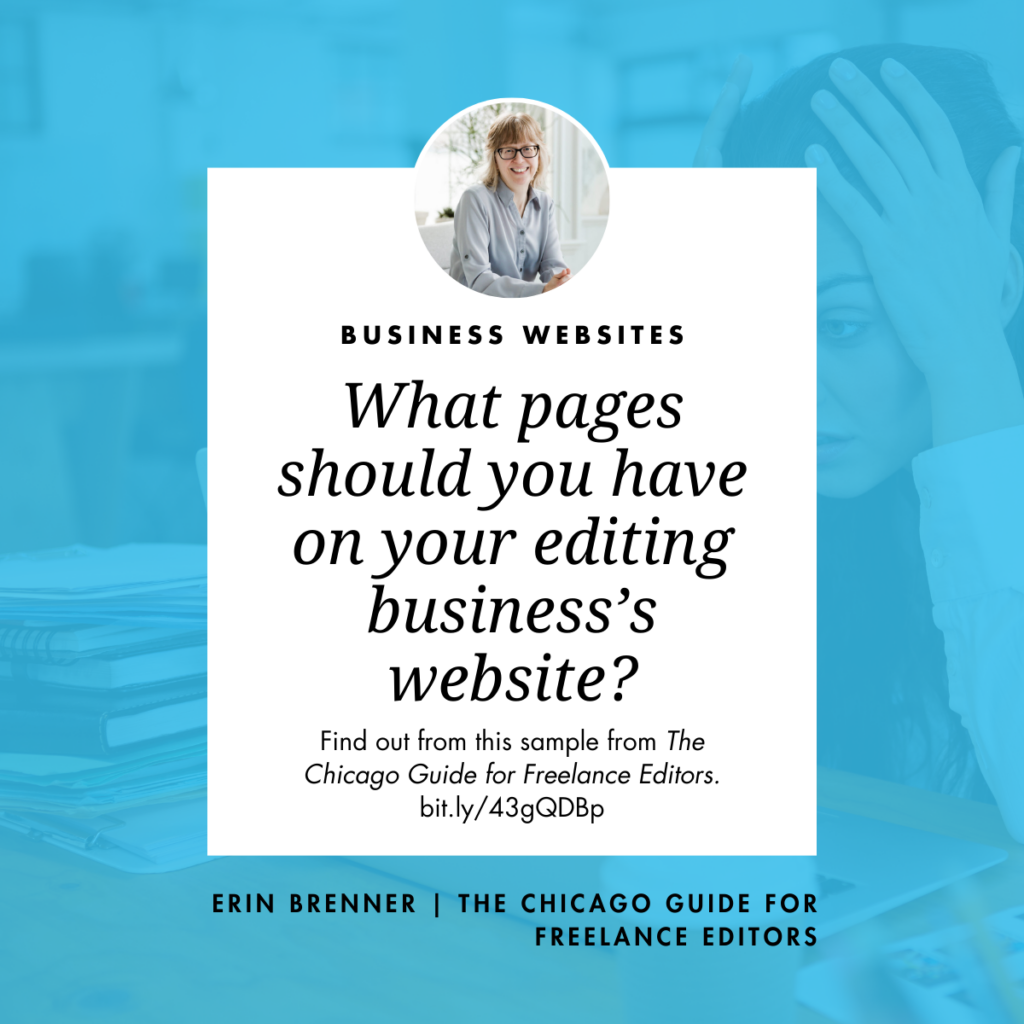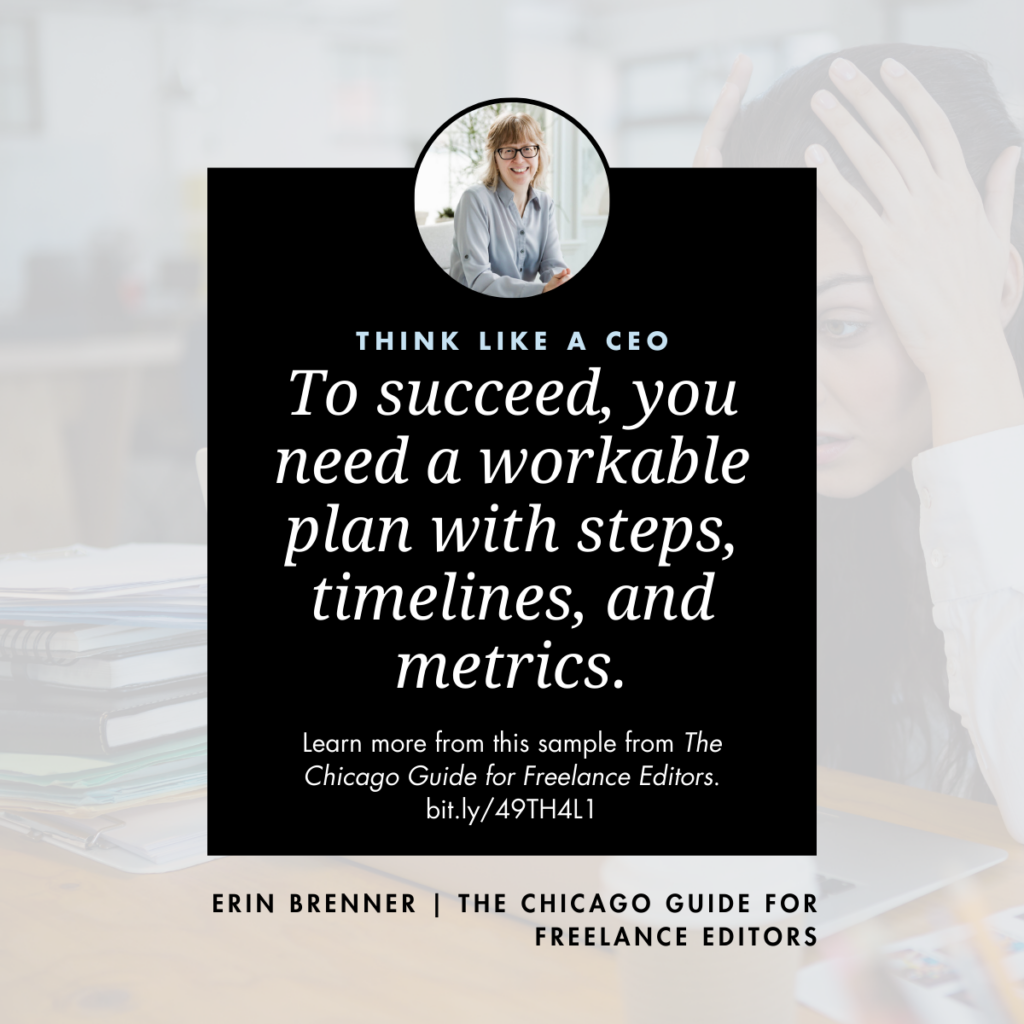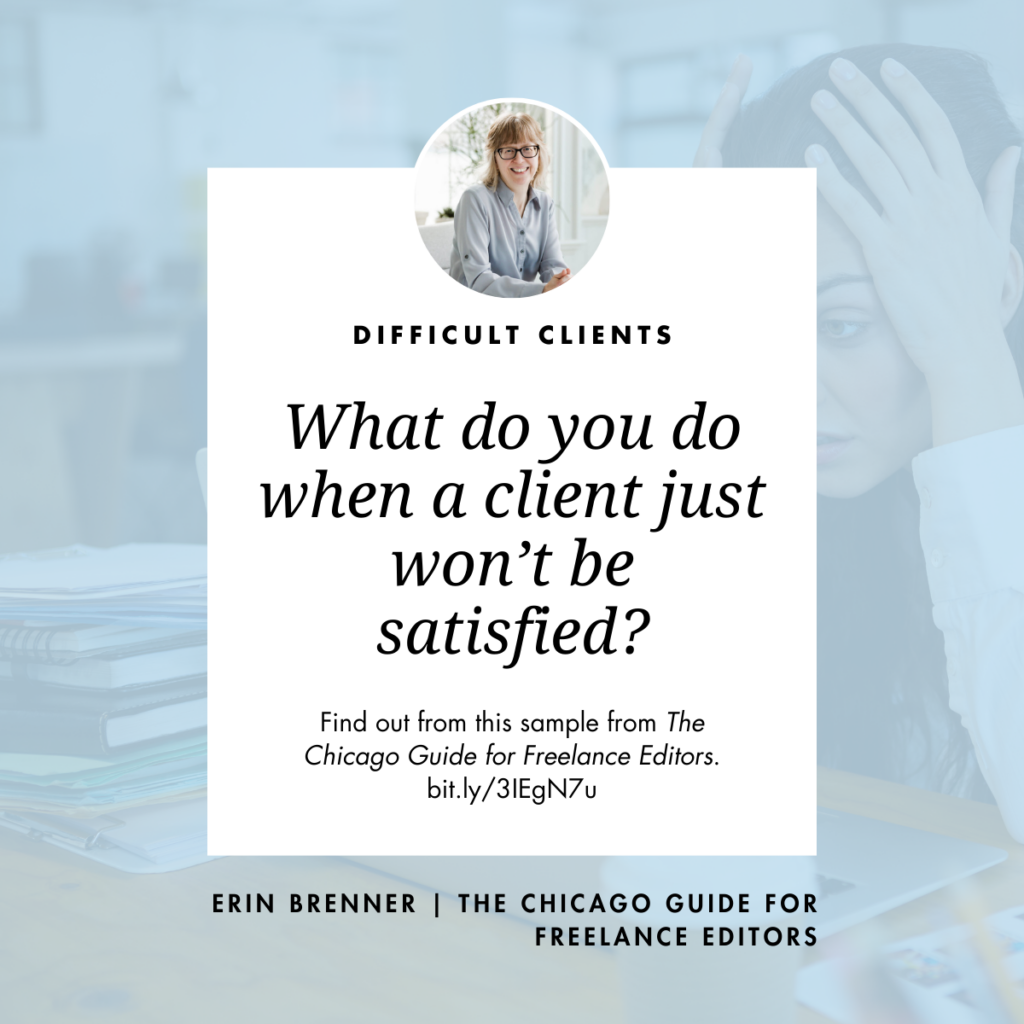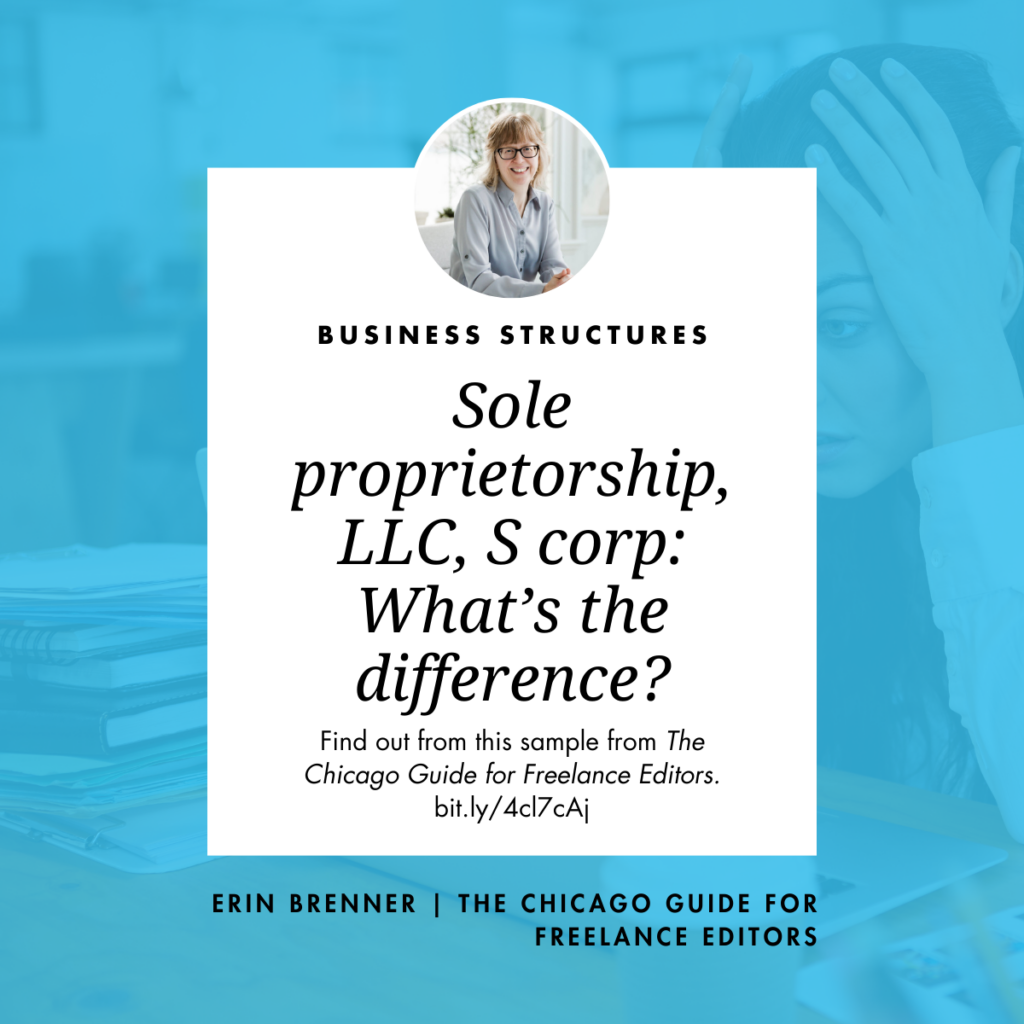Choosing to Freelance
Working as a freelance editor is both rewarding and challenging for those who decide to take the leap of faith. Building your business, brand, and clientele is a lengthy process, but if you love editing, a little guidance is all you need to keep you going. In part one of this monthly series, you will preview a snippet from my new book: The Chicago Guide for Freelance Editors: How to Take Care of Your Business, Your Clients, and Yourself from Start-Up to Sustainability. Enjoy!
In 2005, I found myself stuck in a box. I’d been working full-time as a copyeditor for the ClickZ website for five years, most of that time at home, taking care of our two preschoolers while my husband, Bill, worked an office job. Up to that point, I had appreciated the situation. I had started at ClickZ when I was pregnant with our first child, survived two rounds of layoffs, and had a second child. I now had the flexibility to meet the needs of two young children. My boss was incredibly supportive. As long as I met my deadlines, I could blend motherhood with my job in the way that worked best for me.
Yet by 2005, I was bored with my work. I had found my rhythm long ago, and the website had become a mature publication with set processes. It was now part of a larger organization with more opportunities, but none of them were right for me. So I started doing what an earlier generation called “moonlighting”: taking on a few editing projects here and there to earn extra money and keep my interest in editing alive. ClickZ published articles on digital marketing, and I had had a good education from some of the top practitioners on how to market myself in this new medium. I had a fair idea of what I wanted to edit and for whom. As a web editor in the early days of web publishing, I had some valuable skills and knew how to work in the corresponding content management systems.
After a little research, I joined Mediabistro to try to connect with suitable clients. I named my business Right Touch Editing (RTE) and then created a basic web page on Mediabistro to promote my new freelance business. I kept a close eye on its job board, as well as on a couple of others. I soon found a client and then a few more. I really enjoyed the variety.
Meanwhile, ClickZ was sold a couple of times, each time creating the stress of a new job without an increase in pay or a chance to do something new. Even when ownership was stable, upper management changed frequently, always promising to reinvent the website and give me new opportunities. Those things never happened. I continued to do the same job, year in and year out, without hope of growth or challenge. And then came the year we had to switch health insurance plans three times—once with just twenty-four hours’ notice. That was when I decided I was done working for someone else. Boredom I could put up with, but this level of stress and lack of control over my life? No way.
I got serious about RTE. I dug deep into marketing myself and finding more clients. Bill and I saved money so I could afford to earn less while building my business. It was a lot of work, but I really wanted it and Bill supported me. When my in-laws said they’d invest in my business, I knew it was time to jump. I quit ClickZ in October 2009 and never looked back. That’s not to say that I didn’t struggle and didn’t sometimes wonder whether I should go back to a full-time job. But then something would happen—a payment would hit my bank account, a prospective client would offer an interesting project, or some other benefit of freelancing would make itself known. I would remember what running my own business meant to me, and I’d recommit myself to the path I’d chosen.
Finding Your Own Motivation
What motivates someone to strike out on their own depends on the individual. You might be a work-at-home parent or a family caregiver, as I was. You might freelance so you can work remotely and set your own schedule, in one place or while traveling the world. Or you might freelance to supplement a job that doesn’t offer you full-time work. Perhaps you live someplace where there aren’t any editing jobs and you don’t want to move. Maybe you have a disability that makes working a traditional nine-to-five job difficult or impossible.
When we take risks, such as depending only on ourselves for our income, understanding our motivations is important. Our motivations are what we think about on the hard days. They keep us pushing forward—or, if we realize they no longer apply, help us decide to change course. And they’re what we use to define success. Because while making a living is part of freelancing success, so is being able to do a job you love. Or being able to take care of your aging parents. Or being able to work on your own schedule, while sitting at your dining room table or exploring a different culture on the other side of the world. Or living where you want and still doing a job you love. Or just working in an environment that meets your physical and mental needs.
Freelancing is about making your own path for your own reasons. It doesn’t mean doing it alone, though; there’s a whole community of editors (“edibuddies”) waiting to support you. It does mean being responsible for defining and creating your own success. It means bushwacking a path through a forest of opportunities and decisions, allowing yourself to take a side path if the mood strikes you, to stay at a midway point as long as you want, even forever, or to climb as high as you can to find fantastic views at the top.
Reproduced with permission from The Chicago Guide for Freelance Editors: How to Take Care of Your Business, Your Clients, and Yourself from Start-Up to Sustainability by Erin Brenner, forthcoming from the University of Chicago Press in April 2024.
© 2024 by Erin Brenner. All rights reserved.








One thoughts on “Sneak Peek: The Chicago Guide for Freelance Editors, Part I”